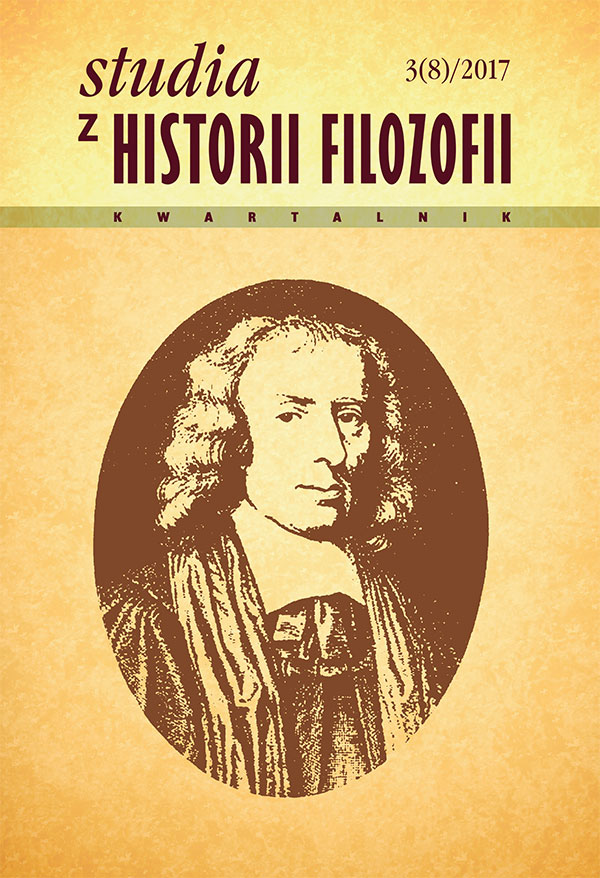Locke on Experience and Notions
DOI:
https://doi.org/10.12775/szhf.2017.033Keywords
John Locke, empiricism, experience, idea, notion, epistemology, natural philosophyAbstract
In the present paper, I analyze the terminology John Locke used in his description of experience. Although he makes idea the principal term, also image, impression, and notion frequently appear in his Essay. Their meanings and interrelations are rooted in the seventeenth-century discussion in post-Cartesian philosophy which was the reason for using them in various contexts by Locke. Additionally, I suggest that three different approaches to experience can be found intermingling in Locke’s Essay: the commonsensical, the psychological, and the psychological one. Depending on a perspective taken in various parts of the work, they complement one another. Distinguishing them makes it possible to appreciate the coherence of Locke’s philosophy in which the individuality of individual experience is made the ground of objective knowledge.
References
Anstey, Peter (2011): John Locke and Natural Philosophy, Oxford, New York: Oxford University Press.
Ayers, Michael (1991): John Locke. London: Routledge.
Gaukroger, Stephen (2006): The Emergence of Scientific Culture. Science and the Shaping of Modernity 1210–1685. Oxford: Oxford University Press.
Kopania, Jerzy (1988): Funkcje poznawcze Descartes’a teorii idei. Białystok: Dział Wydawnictw Filii UW w Białymstoku.
Locke, John (1824): An Essay Concerning Human Understanding. In: The Works of John Locke, London: Printed for C. and J. Rivington, vol. 1–2.
Locke, John (1824): An Examination of P. Malebranche’s Opinion of Seeing All Things in God. In: The Works of John Locke, London: Printed for C. and J. Rivington, vol. 8.
Malebranche, Nicolai (1700): The Search after Truth. transl. T. Taylor, London.
McRae, Robert (1965): “’Idea’ as a Philosophical Term in the Seventeenth Century”, Journal of the History of Ideas, 26.
Walmsley, Peter (2003): Locke’s ‘Essay’ and the Rhetoric of Science. Lewisburg, London: Bucknell University Press – Associated University Presses.
Woolhouse, Roger (2009): Locke. A Biography. New York: Cambridge University Press.
Yolton, John (1956): John Locke and His Way of Ideas. Oxford: Oxford University Press.
Downloads
Published
How to Cite
Issue
Section
Stats
Number of views and downloads: 729
Number of citations: 0



